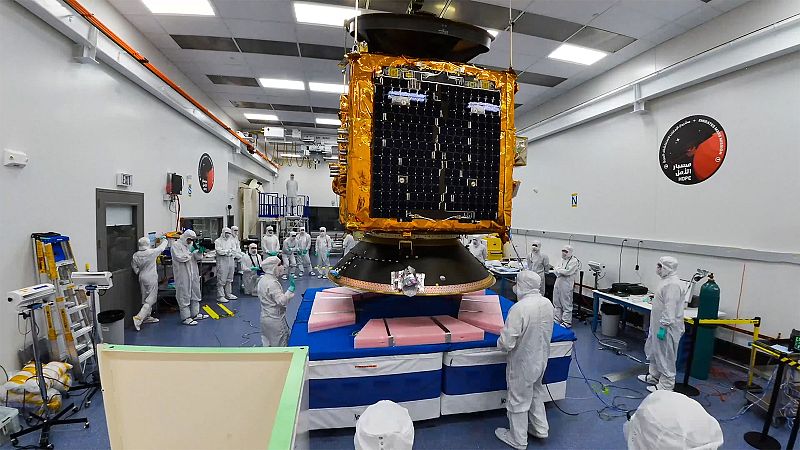UAE Mars probe could help battle climate change on Earth

Devastating wildfires in Australia and California, record-breaking numbers of tropical storms in the Indian Ocean and the hottest ever summer in Europe. These events are just a few examples of the effects climate change is having on Earth.
Currently, 11% of the world’s population is vulnerable to climate change impacts such as droughts, floods, heatwaves, extreme weather events and sea-level rise.
Scientists with the British Antarctic Survey discovered in May 1985 that there was a huge hole in the ozone layer over Antarctica. This hole and the thinning layer of the atmosphere surrounding it are a result of air pollutants from human activities. Without the protection of the atmosphere, strong UV rays can cause sunburn, cataracts, genetic mutations, and cancer. Since this discovery, efforts to further understand our changing planet have become more important than ever.
Earth is not the only planet to undergo dramatic changes. Located approximately 225 million kilometres away, Mars is another planet that has experienced radical change. Known as the 'Red Planet', Mars once had a thick atmosphere which enabled it to retain enough heat for the planet to have liquid water.
Mars was transformed from a planet with large bodies of water, that may have supported life, into a cold inhospitable desert. Teams of scientists from around the world are now studying Mars. One team that is looking to add to mankind's knowledge of Mars is the ‘Emirates Mars Mission’ based in the Mohammed Bin Rashid Space Centre, UAE.
Sheikh Khalifa bin Zayed Al Nahyan, the president of the United Arab Emirates announced in 2014 that they would send a probe to Mars in 2020. In these 6 years the UAE Space Agency had to develop a world class space sector. The Hope probe will be the first satellite from the Arabic world to reach another planet.
Launched in July 2020, it will take seven months for the 'Hope' probe to enter Mars’ orbit. The probe has been designed to withstand the worst possible conditions. Team engineer, Mr. Alawadhi said, "It takes between 12 minutes and almost half an hour to talk to the spacecraft. So you’re not commanding it, you’re just programming it in a certain way and autonomously it will say what it has to do. We’re just crossing our fingers that it’s doing what it’s supposed to do."
The probe will gather data that will help explain why Mars is losing its upper atmosphere to space. It will do this by using its onboard apparatus, tracking the behaviour and escape of hydrogen and oxygen, the building blocks of water. With this they can then look for connections between today’s weather and the ancient climate on Mars. Understanding this may then help us to better understand what is happening to our own climate here on Earth.
Tuesday, june 8, 2021

